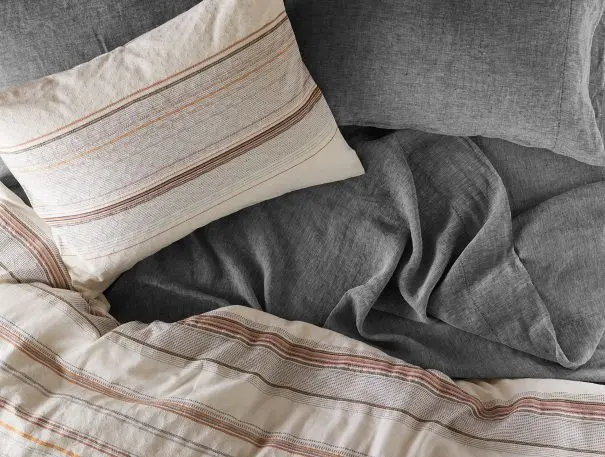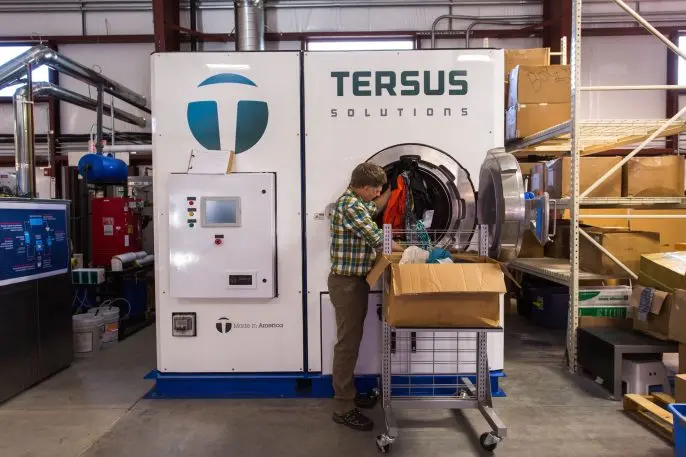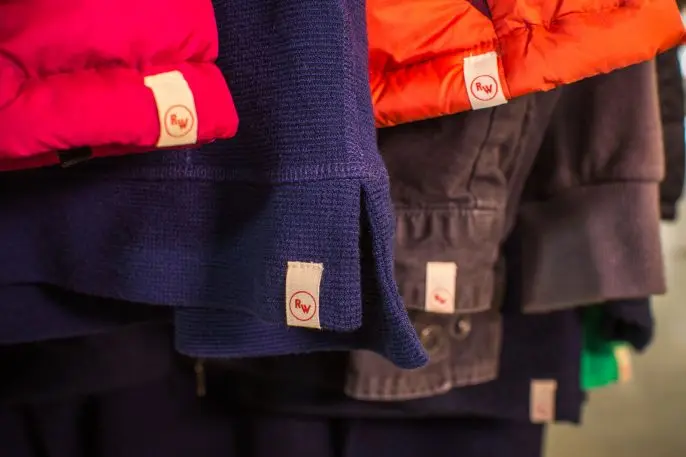Fast fashion fundamentally changed the way we relate to clothes. Rather than investing in garments meant to last years–perhaps even a lifetime–the fashion industry encouraged people to think of clothes as disposable items that you chuck out at the end of the season, much like you might throw out used paper plates after they’ve served their purpose.
Our relationship with clothes may be spilling into how we treat other fabrics, like our towels and bedsheets. There’s been a recent boom in bed linen startups like Parachute, Brooklinen, and Boll & Branch, making quality sheets more affordable to the masses. But this also means that it is becoming easier to treat our home linens as fashion objects that we might swap out every season or every year. And by extension, this means more fabric ending up among the 10 million tons of textiles that go to landfills every year. Textile waste currently makes up nearly 5% of landfill space, according to some estimates, while the average American throws away 82 pounds of textiles every year.
Coyuchi, a 26-year-old San Francisco home brand focused on sustainability, has noticed this trend. “We’re seeing consumers treat home linens the way they treat their clothes,” says Eileen Mockus, the company’s CEO. “They want their homes to be fashion-forward, like their clothes. Plus, people love the feeling of crisp new sheets, out of the box.”

The most fascinating part of the program is what happens to the sheets when they are returned. Most of the time, the sheets are still in good condition and can be used again.
To clean them and “upcycle” them back into use, Coyuchi has partnered with The Renewal Workshop, a recycling and retail startup that uses a state-of-the-art machine–one of only six in the world–to “refresh” the linens without the use of water. Built by Tersus Solutions, the machine douses lines in liquified carbon dioxide, whose molecules are smaller than water, making them more effective at picking up dirt and removing it. That process removes oil, particulates, and odors from the material, which would otherwise damage the product. As a bonus, the entire process uses fewer natural resources.

The Cascade Locks, Oregon-based company also repairs any aspect of the sheets that might need tending to, such as minor tears or lost buttons. The company then resells the sheets at a fraction of the price of a new set. Mockus says these products are particularly popular with hotels or people who rent out their properties with Airbnb, since this allows them to give their guests high-end sheets at lower prices. Renewal Workshop also partners with forward-thinking apparel brands like Prana, Ibex, and Thread to transform returned clothes into products that it can resell through its online store.
Currently, most textile recycling means donating clothes—and old sheets—to charities like Goodwill or Salvation Army, where they can be reused and resold. But the brand is betting that the subscription program will make that process far easier for customers. After all, even the most well-intentioned consumer may be tempted to throw their sheets away if it involves a thorough cleaning, a Google search, and a trip to the donation center or an elaborate label-printing endeavor to make it happen. “The idea is to bake the recycling into the process from the beginning,” says Mockus.

Coyuchi makes this process easier than other textile manufacturers because it only uses organic cotton, which makes it easier for The Renewal Workshop to process and break down. And, in any case, organic cotton is biodegradable, so it will eventually decompose, taking up less landfill space.
The Renewal Workshop’s efforts at recycling are still in their infancy. The company is conducting research on how to extract the fibers and then re-mill them into new fabrics. All materials that come into their facility that cannot be up-cycled or reused are used for these various experiments.
“The end goal is to break the fabric down into its raw materials so that they can be used to create an entirely new product,” Denby explains. “Eventually, we believe that fabrics can be part of a circular economy, much like plastic.”
Recognize your brand’s excellence by applying to this year’s Brands That Matter Awards before the final deadline, June 7.
Sign up for Brands That Matter notifications here.
